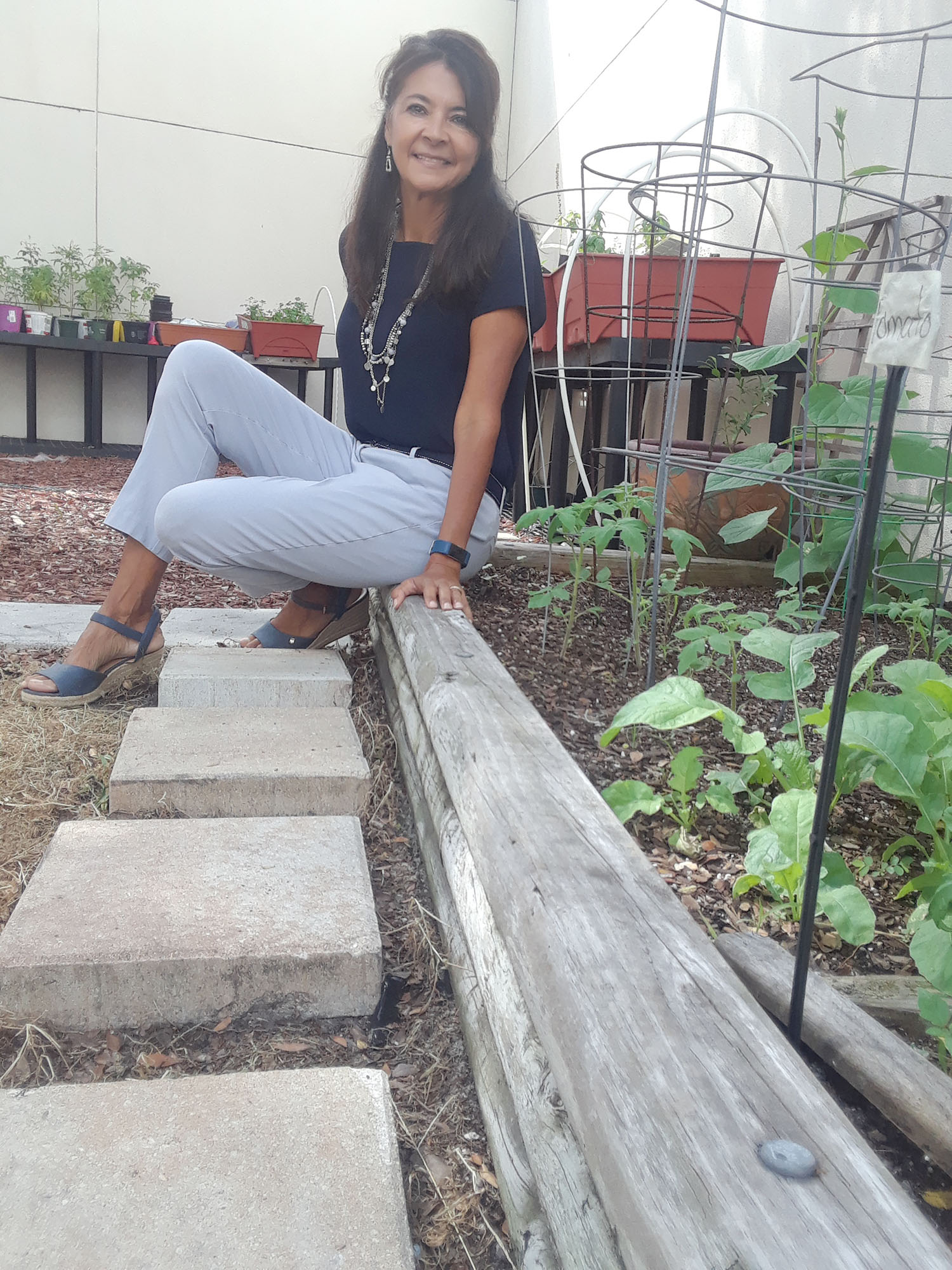Riverview High honors diversity teacher of the year
Elda Cabrera is Exceptional Student Education specialist
By KEVIN BRADY

KEVIN BRADY PHOTO
Elda Cabrera uses this garden at Riverview High to help students in the school’s Exceptional Student Education program learn life skills. Students also donate herbs from the garden to the school’s culinary program as well as donating produce to community groups.
Looking from the outside, she has one of the toughest jobs in any school, but to hear Elda Cabrera, she is just doing what she was meant to do.
An Exceptional Student Education teacher at Riverview High School who was recently named Diversity Teacher of the Year, Cabrera found her calling at an early age.
A fifth-grader, she was visiting relatives in Mexico when she met a cousin who was severely mentally handicapped.
“My initial reaction was not fear, but to run and try to help although I don’t know what I thought I was going to be able to do. I was quickly stopped and told ‘You can’t do that, he’s got to have his moments.’”
From that moment, Cabrera had her mission. “I had asked to be a teacher’s aide in a class for students with disabilities. It just felt like second-nature to me. I didn’t fear it and I didn’t sympathize, which I didn’t think would be very respectful to the (exceptional) students.”
Cabrera felt “undeserving and was taken aback by the award” — it was voted on by her fellow teachers — but it is well deserved, said Riverview High Principal Danielle Shotwell.
“Elda Cabrera is an amazing educator and instructional leader amongst our faculty who works tirelessly to prepare our students with special needs to be independent, successful adults when they leave Riverview High School. Our students and staff are blessed to work with her each and every day,” Shotwell said.
Every classroom presents its own set of challenges, said Cabrera, who moved to Florida in 2005 where she taught at Lopez Exceptional Center in Seffner for a year before moving to Riverview High. “For us (in exceptional student classes) it’s trying to promote and maintain a learning environment even when someone is having a difficult moment, behaviorally or emotionally, so it’s a balance.”
The last 21 years has found Cabrera in classrooms from Texas to Indiana, an era when exceptional students have been integrated into high schools. Mainstreaming, as it has become known, benefits everyone, Cabrera said.
With mainstreaming, exceptional students are surrounded by the behaviors, attitudes and the social skills the moment they leave the class, seeing firsthand what Cabrera and her fellow special education teachers are trying to impart through lessons in the classroom. “I grew up in an era when (exceptional) students were hidden in the back of the class or the buildings. For (exceptional students) it’s definitely a very, very good thing to have our students out there in the mainstream environment.”
Cabrera teaches a 12-plus class, students who have already graduated, aged 18 to 22, ranging from severe and profound mentally handicapped to high-functioning students with autism. She encourages students to be as independent as possible.
“I tell my parents to really promote independence,” said Cabrera, who has been nominated for the Center for Exceptional Children award in the past, a prestigious national honor. “It’s my job to ensure that their child understands what society is expecting because most of my students do not look like they’re handicapped or have a disability. It’s my job to teach them as much as possible … keep pushing them to be as independent as possible,” Cabrera said. “That’s always one of the hardest things for people outside the classroom to learn. They think they just have to help a little more and give (the students) a little bit more, but one of the things I tell my parents is the more you do (for the students), the less they will do, and the less they will be,” said Cabrera who is married with three children. None are teachers.
“They (her children) have spent time with me in the classroom, helping me with students, but they thought they could never have the patience. I don’t know why everyone thinks that (about needing patience),” said Cabrera who earned a master’s degree in working with students with severe and profound autism from the University of South Florida in 2005.
For Elda Cabrera she is just doing what she believes she was meant to do.

